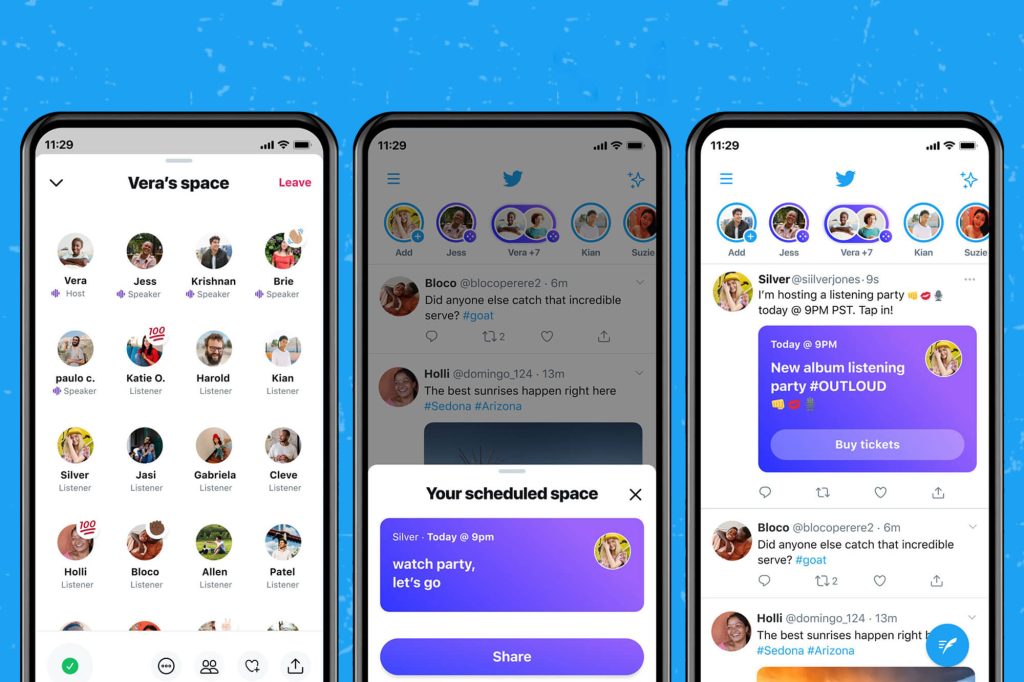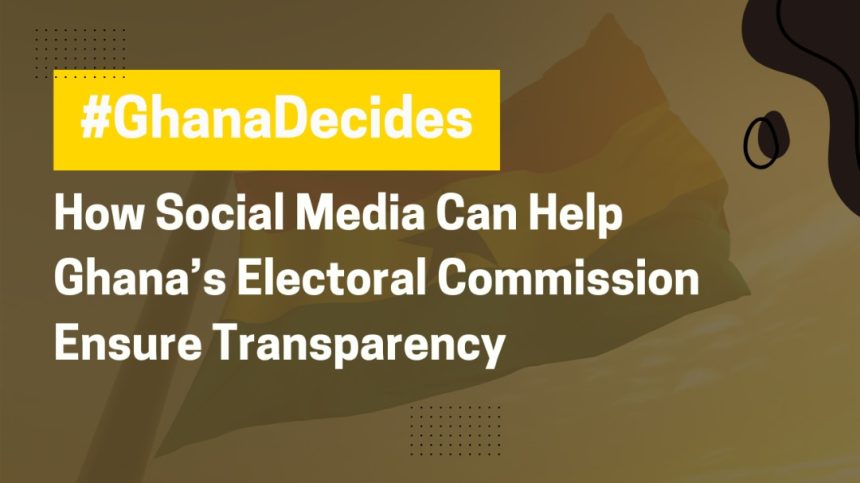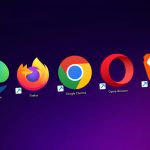When elections are discussed, social media often becomes a contentious topic, with calls to ban platforms gaining traction. However, such a move would be counterproductive.
Social media is a powerful tool for communication, engagement, and information dissemination during elections.
Rather than silencing it, leveraging its potential for voter education, transparency, and real-time updates can foster trust and inclusivity in the electoral process.
As of January 2024, 7.4 million Ghanaians representing 21% of the population were recorded as active social media users. That’s 6times the population of Equatorial Guinea.
As December 7th approaches, the buzz around Ghana’s elections is unmistakable. From heated morning show debates on the radio to spirited discussions in trotro rides, banter with Uber drivers, and family arguments at dinner tables, the nation is gearing up for yet another chance to shape its leadership.
In a country where 69.8% of the population has internet access, the rollout of 5G has sparked conversations around digital transformation, and the word ‘digitalization’ is thrown around like an empty milk can, in a game of ‘chaskele’, social media will inevitably play a critical role in this year’s electoral process.
But how can Ghana’s Electoral Commission (EC) leverage these platforms to ensure transparency, fairness, and trust in the system?
This article details five ways the EC can use social media effectively to foster a transparent, free, and fair election.
1. Online Forums for Pre-Election Education
Education is key to building trust and reducing confusion during elections. Anywhere in a digitally empowered nation, online conversations get rife as the election approaches.
Due to the influence of social media, elections have seen different outcomes from early projections, like the Kalypo moment of 2016 and the recent US election. The EC must actively use social media to educate citizens on the voting process, rules, and expectations for election day.
- Host weekly X Spaces & Facebook Live sessions: Platforms like Facebook Live and X Spaces provide an excellent opportunity for the EC to engage directly with the public. In these sessions, officials can answer all the necessary (and unnecessary) questions that may not be asked during the press conference, which is limited to journalists looking for a news story.
- Online forums like X Spaces and Facebook Live, allow you to get closer to the real, curious, and discerning individuals who will wake up early on 7th December, wait in line till it’s their turn, and keep awake till the last ballot is counted.
During X Spaces, you can easily collate the key issues around the election because X Spaces has tools and features that give everyone a chance to speak without the chaos of a town hall.
Facebook Live gives EC officials the platform to demonstrate how to vote correctly, good thing, the video lives on the page forever and can be pinned for reference.

X Spaces and Facebook Live will reach the individual beyond the airwaves of a radio or the signals of a TV channel and at their convenience because all they need is a smartphone.
The critical function of X Spaces and Facebook Live to the EC is, that they help them address misinformation. With the speed at which false information is already spreading on Twitter through bots, Twitter and Facebook offer a stronger and unique opportunity to debunk all the myths and provide verified facts ahead of 7th December and also reduce confusion across the country because anyone can easily reference what was said later. The internet never forgets.
2. Setup a Monitoring Center for Real-Time updates on Election Day
Election day is often fraught with tension and rumors. Hosting a press conference can be demanding and often, chaotic, moreover, not many people are glued to their radio or TV at every time, but everyone has a phone. Ghana’s cellular connection is at 113%. Social media offers the EC a platform to keep voters informed and calm.
Just like concerts and shows have media rooms for live updates, the EC needs to set up a media and monitoring room to provide up-to-the-minute updates on election day. The media and monitoring room will have expert social media managers and monitors who will keep the audience up to date on what’s on the ground, help the EC to guide public opinion, and also limit misinformation.
The 2012 and 2016 elections saw very good examples of the use of online media and monitoring centers to bring some sanity online and build confidence in the work of the EC during the election.
This is how a media and monitoring center works: a team of online monitors, social media managers, and PR professionals scour online for information about the election.
The monitors report an issue to the social media managers who tag it relevant or irrelevant.
The PR expert drafts a response for approval from the apex EC management team. This information is relayed to the public through the social media managers who act as the voice of the electoral commission online.
On microblogging sites like X, information travels fast. X affords you the ability to address issues before they spiral out of your control.
Some updates the EC can provide from the media and monitoring room include:
- Polling Station Updates: The EC can use platforms like X or Telegram to share real-time updates about polling station openings, delays, and special arrangements. Using a thread or a hashtag, it’s easy for everyone to follow a comprehensive report on election day.
- Fact-Check Rumors in real-time: False reports and rumors are common during elections. The EC can partner with local fact-checking organizations to flag and address misinformation quickly. A simple tweet or post correcting an error can prevent widespread panic.
3. Live Online Collation
Once voting ends, transparency in the collation and declaration of results is critical to maintaining public peace and trust.
Live online collation centers keep the audience focused, subdue tension, and create a clear path to the end goal — a peaceful declaration
- Infographics and Summaries: As provisional results are announced, the EC can share clear and simple updates with infographics. This ensures the public can follow along without confusion. Infographics are shareable content that travels fast on the internet because anyone can easily interpret them. Numbers alone can be confusing.
4. Partner with communities and civic groups to encourage citizen reporting:
Through Blogging Ghana’s #GhanaDecides, transparency in elections has been deepened. #GhanaDecides is a citizen journalism campaign that places volunteers at various polling stations to report events from the grounds. This initiative has succeeded in reducing unnecessary chaos and confusion during collation and reducing misinformation online.

It’s prudent for the electoral commission to leverage the online support of these (credible) independent groups to drive awareness, vigilance, and transparency during the election.
This creates a two-way communication channel and reassures voters that their voices are being heard.
After the results are announced, social media can still be an essential tool for maintaining trust and learning from the process.
5. Post-Election Analysis and Accountability
- Post-Election Audit: The EC can share detailed post-election reports online, explaining challenges faced and how they were addressed. This openness fosters trust in the institution.
- Celebrate Citizen Participation: Highlight peaceful moments, high voter turnout, and stories of ordinary Ghanaians who contributed to the electoral process. This reinforces a positive narrative about democracy in Ghana.
The impact of Twitter during the Arab spring, the ending of the EndSars, how Kalypso facilitated the appeal of Akuffo Addo in the 2016 election, and Kenya’s recent youth apprising, and protests like #OccupyJulorbi House, #StopGalamseyNow, have taught us that social media is the unofficial mouthpiece of the world
A transparent election has clear communication channels, well-oiled with frequent, unambiguous information.
A fair election takes the responsibility to promptly deliver information about the process to everyone in a comprehensive manner, without prejudice to their geographical location, affiliation, gender, or age.
A free election achieves all of the above without imposing any direct costs on citizens.










